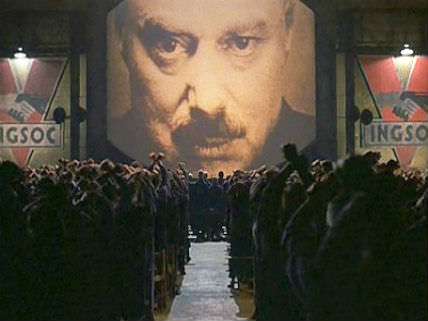Environmental Protection Agency
The EPA Manufactures Its Own Consent
Justifies new water regs on the grounds that 90 percent of public comments it solicited favored them.

In his 1988 book, Manufacturing Consent: The Political Economy of Mass Media, co-author Noam Chomsky decried how newspaper, radio, and television peddles "system-supportive propaganda" in the service of ideological goals. The masses are diverted from challenging the system by Necessary Illusions promoted by the political class. Of course, as a committed leftist Chomsky is convinced that a corporate power elite is in charge of the process of manufacturing consent and disseminating necessary illusions.
As it happens, President Obama's Environmental Protection Agency (EPA) has apparently learned a trick or two when it comes to manufacturing consent. Earlier this week, the agency released its new surface water regulations. Let's set aside for the moment whether or not the agency actually has the authority to adopt the new regs, and look instead at how the agency managed the process of creating the necessary illusions to justify their adoption.
Earlier this year, EPA Administrator Gina McCarthy testified that out of over 1 million comments received regarding the proposed regulations nearly 90 percent favored them. The implication, of course, is that the public should get what the public so overwhelmingly demands. But the New York Times is reporting that EPA officials were not just the passive recipients of comments, but actively encouraged interest groups to mobilze their members to flood the agency with supportive emails and letters. Critics argue that the agency-managed campaign violated the Anti-Lobbying Act.
From the Times:
In a campaign that tests the limits of federal lobbying law, the agency orchestrated a drive to counter political opposition from Republicans and enlist public support in concert with liberal environmental groups and a grass-roots organization aligned with President Obama.
The Obama administration is the first to give the E.P.A. a mandate to create broad public outreach campaigns, using the tactics of elections, in support of federal environmental regulations before they are final….
the Justice Department, in a series of legal opinions going back nearly three decades, has told federal agencies that they should not engage in substantial "grass-roots" lobbying, defined as "communications by executive officials directed to members of the public at large, or particular segments of the general public, intended to persuade them in turn to communicate with their elected representatives on some issue of concern to the executive."
Late last year, the E.P.A. sponsored a drive on Facebook and Twitter to promote its proposed clean water rule in conjunction with the Sierra Club. At the same time, Organizing for Action, a grass-roots group with deep ties to Mr. Obama, was also pushing the rule. They urged the public to flood the agency with positive comments to counter opposition from farming and industry groups.
The results were then offered as proof that the proposal was popular.
"We have received over one million comments, and 87.1 percent of those comments we have counted so far — we are only missing 4,000 — are supportive of this rule," Ms. McCarthy told the Senate Environment and Public Works Committee in March. "Let me repeat: 87.1 percent of those one-plus million are supportive of this rule." …
At minimum, the actions of the agency are highly unusual. "The agency is supposed to be more of an honest broker, not a partisan advocate in this process," said Jeffrey W. Lubbers, a professor of practice in administrative law at the American University Washington College of Law and the author of the book "A Guide to Federal Agency Rulemaking."
"I have not seen before from a federal agency this stark of an effort to generate endorsements of a proposal during the open comment period," he said.
Other legal experts quoted in the Times suggest that while the EPA's consent manufacturing exercise may not violate the Anti-Lobbying Act, its creation of the necessary illusion of public support walks up to the line.
Chalk up another propaganda, uh, public engagement success for "the most transparent administration in history."


Show Comments (31)